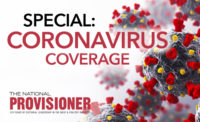The board of the National Institute of Animal Agriculture recently approved forming a new council: the Animal Disease Issues & Emergency Management Council. The purpose of the council is to provide a forum for animal agriculture, the animal health industry, regulatory veterinarians, government agencies and academia to identify and seek solutions to issues involving emerging and emergency animal diseases of significant concern to animal agriculture or public health both domestically and globally.
Since NIAA’s inception in 1916, their mission has been to convene leaders regarding important and developing topics. Councils were developed to collaborate, learn and discuss current and emerging topics to provide platforms to exchange scientific information, find common ground and seek resolutions across species segments.
This council is a result of the combination of the Animal Health and Emergency Management Council and the Global Animal Health and Emerging Disease Council. Lucas Pantaleon from DVM One Health and Julie Smith, Ph.D. – University of Vermont, College of Agriculture and Life Sciences, currently serve as co-chairs of the new council.
Councils within NIAA are regularly reviewed, reaffirmed, modified or sunset to ensure relevance to current industry patterns and needs. In addition to standing councils, NIAA members form work groups to address specific issues. At NIAA’s Annual Conference in 2022, the council members noted increasing discussion and scrutiny about the use of mRNA vaccine technologies in animal agriculture. This resulted in a working group of industry experts in veterinary medicine, epidemiology, virology and communications to create scientifically factual resources for animal agriculture — and its role in today’s food system. An infographic and an information brief are available at AnimalAgriculture.org under the resources tab.
Participation in NIAA’s councils is open to animal agriculture stakeholders. To receive information about council programming, visit AnimalAgriculture.org and complete the checklist for ongoing council information.
Source: National Institute of Animal Agriculture




Report Abusive Comment